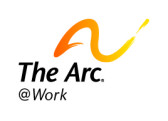Planning for a Future in the Workforce: Jobs, Skills, and Supports
Planning for a Future in The Workforce: Jobs, Skills, and Supports
To mark Disability Employment Awareness Month, The Arc’s Center for Future Planning convened thought leaders on a webinar to discuss how people with intellectual and developmental disabilities (IDD) and their families should plan for a future in the workforce. If you missed it, you are not out of luck – check out this quick summary.
Planning
An ideal person-centered plan provides an accurate picture of the skills and interests of a person with IDD. The plan should also outline the support a person with IDD needs to be successful and be used as a document to lay the foundation for a successful career in the workforce. As Anne Roehl, Institute on Community Inclusion, University of Minnesota, noted, “We should be exploring opportunities before the old job gets boring. We should always be asking what the person wants to learn next.”
Exploring Employment Opportunities
In addition to exploring job-training programs, we should provide people with IDD with the same tools and resources that people without disabilities use to get jobs. John Kramer, PhD, at the Institute for Community Inclusion at the University of Massachusetts Boston pointed out that “people without disabilities try out jobs, get paid, and if they don’t like it, they leave. In the disability employment world, we don’t often think of it that way. People with disabilities also benefit from getting a variety of experiences.”
It is important for people with IDD to get an understanding of different employment opportunities and they should be encouraged to explore these possibilities during high school. People with IDD should also be encouraged to pursue internships and informational interviews in order to continue identifying jobs that might be of interest to them.
Understanding Rights and Responsibilities in the Workplace
The Americans with Disabilities Act bars employers from discriminating against people with disabilities and provides for reasonable accommodations in the workplace. Melanie Whetzel, Lead Consultant at the Job Accommodation Network highlighted the importance of people with IDD and their advocates understanding their rights and responsibilities under the ADA.
Challenges can arise when an employee gets a new supervisor. Melanie pointed out that the likelihood of continuity increases if accommodations are put in place for the person with IDD through a formal process rather than informally with a supervisor. Use of a formal process increases the number of people who know about the accommodations for the person with IDD and understand why they are effective.
Support in the Workplace
Thought leaders agreed that it’s critical for people with IDD to strengthen workplace relationships, which will help with integrating them into workplace teams. A person with IDD’s supporters should always be looking at how to improve conditions and training in the workplace.
For example, once a person with IDD is in a job they may be interested in other workplace duties and express an interest in training. Acquiring additional job skills is important not only for the person with IDD, but it’s also beneficial to the employer when employees learn new skills.
Technology
Technology is advancing and webinar panelists emphasized the importance of access to technology in all aspects of the person’s life. Even if it isn’t relevant to the job today, it could be in the future.
The panelists agreed that use of technology in the workplace should be a priority so that people with IDD are not left behind. We should remind employers that there might be a need for on-the-job-training. Breaking down a process can enable a person with IDD to learn the essential elements of what is needed to use a piece of technology on the job.












